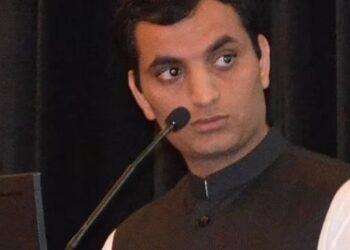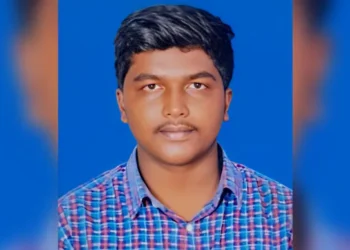The Indian government’s Ministry of Civil Aviation has decided to remove the requirement for all international passengers to complete the Air Suvidha form. On Monday, November 21, the decision was taken and declared.
Air Suvidha is an online system that allows international passengers to complete an obligatory Self Declaration form to declare their current health status. This form had been made mandatory, and all overseas passengers flying into the country were required to fill it out before boarding.
Last year, the Ministry of Civil Aviation and the Ministry of Health and Family Welfare enforced contactless self-declaration at the Air Suvidha Portal to guarantee the seamless transit of overseas visitors arriving in India.
The Air Suvidha portal’s exemption forms have been eliminated, and all international travellers coming to India are now required to fill out the information in order to ensure the necessary protection of the Omicron variant of the Covid-19 virus.
In order to accommodate the travel directives announced on 30 November 2021, the Air Suvidha portal, which was introduced in August 2020, has been enhanced.
The mandatory online submission of the Air Suvidha form by all incoming travellers was requested to be removed by the government by the Federation of Hotel & Restaurant Associations of India in October because it is impeding tourist growth as the Covid-19 outbreak fades.
The Federation of Hotel & Restaurant Associations of India (FHRAI) said in a statement that the organisation has informed Civil Aviation Minister Jyotiraditya Scindia about the challenges faced by international travellers in representation.
Prior to this, India has praised the restrictions at each Point of Entry (PoE) for the effective battle against COVID-19. The Centre noted on Wednesday that India’s response to Covid at points of entry was proactive, preventive, and graded.
Union Health Secretary Rajesh Bhushan had previously stated that effective surveillance at such points delayed the arrival and spread of the disease, giving time for developing the necessary health infrastructure and capacities to effectively handle it.
The decision to stop using the self-declaration form will take effect on November 22, according to a statement by the Ministry of Civil Aviation. As a result of the statement, foreign travellers arriving in India by plane will no longer be needed to complete the Air Suvidha form between November 21 and 22, at midnight, or to submit a sample for the RT-PCR COVID-19 test.
Since the COVID-19 pandemic began, passengers, including those who were five years old or older, were required to have RTPCR tests before boarding an aircraft back to India. In general, RTPCR tests performed outside of India are more expensive. A single RTPCR test, for instance, costs about Rs 7,000 in the Maldives.
Apart from that, it is no longer required, though it is still preferred, for new international entrants to be immunised. The easing of restrictions came days after India made it optional for air travellers to remain disguised on aircraft and in airports, albeit this time it is still preferred.
Passengers who exhibit symptoms during screening must be immediately segregated and transported to a specified medical facility in accordance with health procedures. Post-arrival, each traveller must keep track of their own health.
Due to the dramatically improved pandemic situation, the government last week made mask use optional for travellers taking domestic and foreign flights. The guidelines have been updated in light of the persistent decline in COVID-19 incidence and the notable improvements in COVID-19 immunisation coverage both internationally and in India.
As the pandemic situation has improved over the past few quarters, India has been removing COVID time restrictions, such as those on domestic airfare range, in-flight meal and beverage serving/selling, the number of domestic flights permission, restrictions on scheduled international flights, and testing and quarantine requirements.











